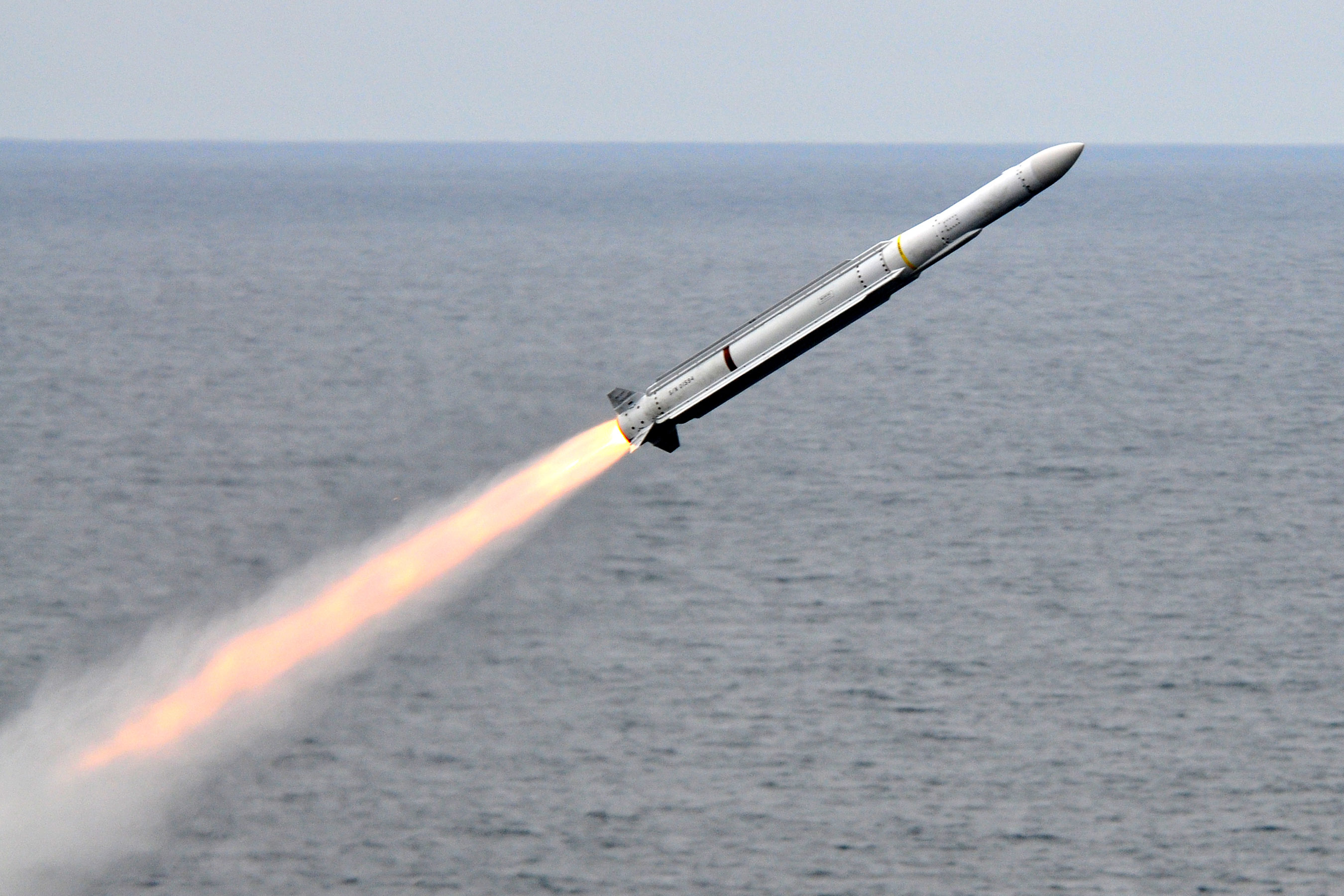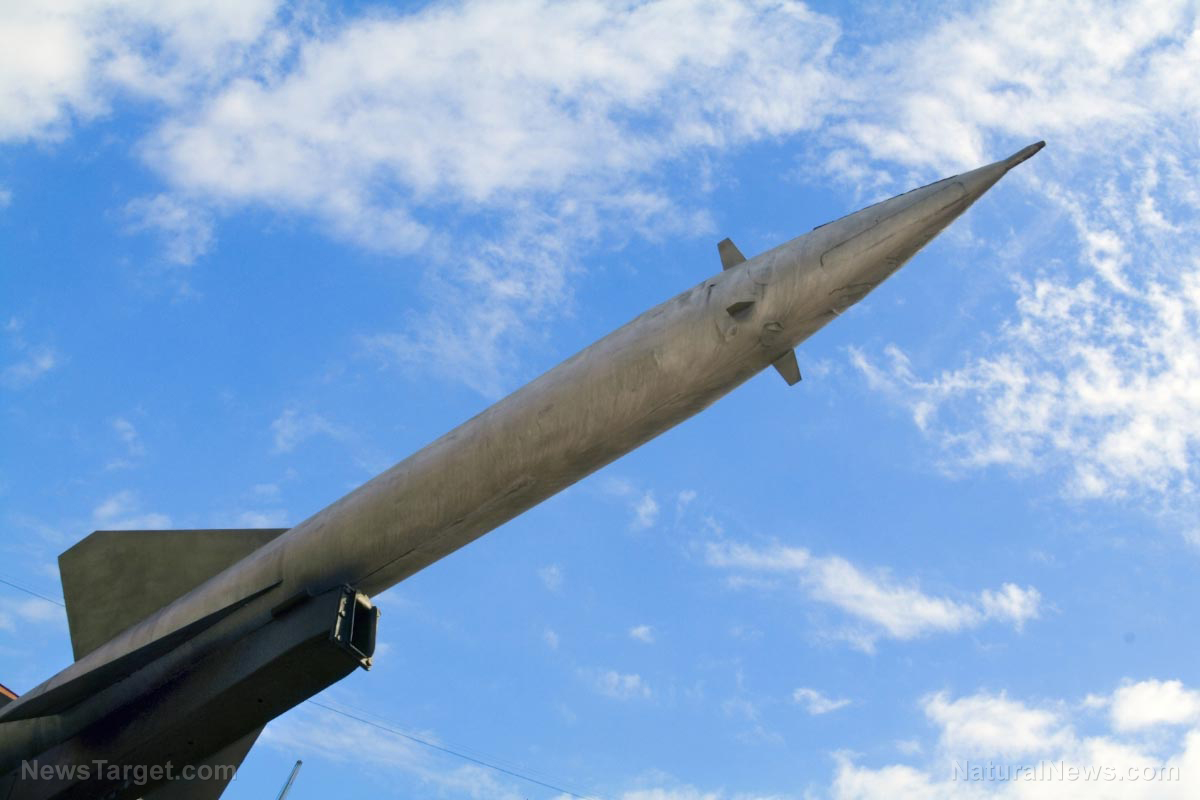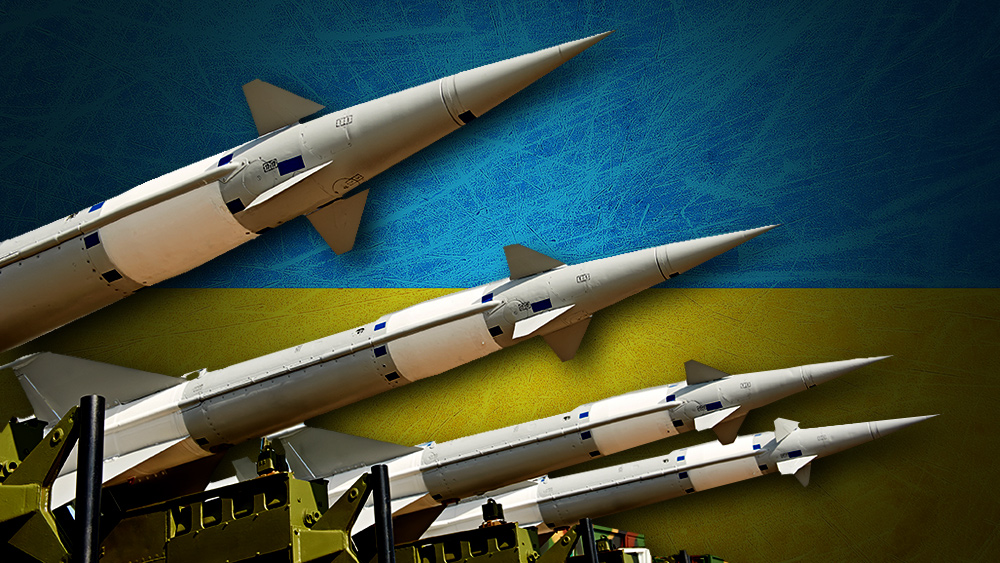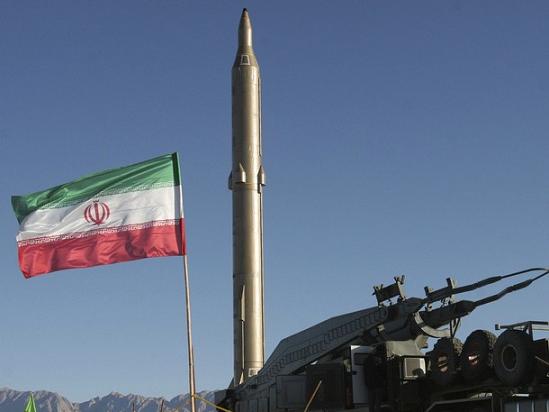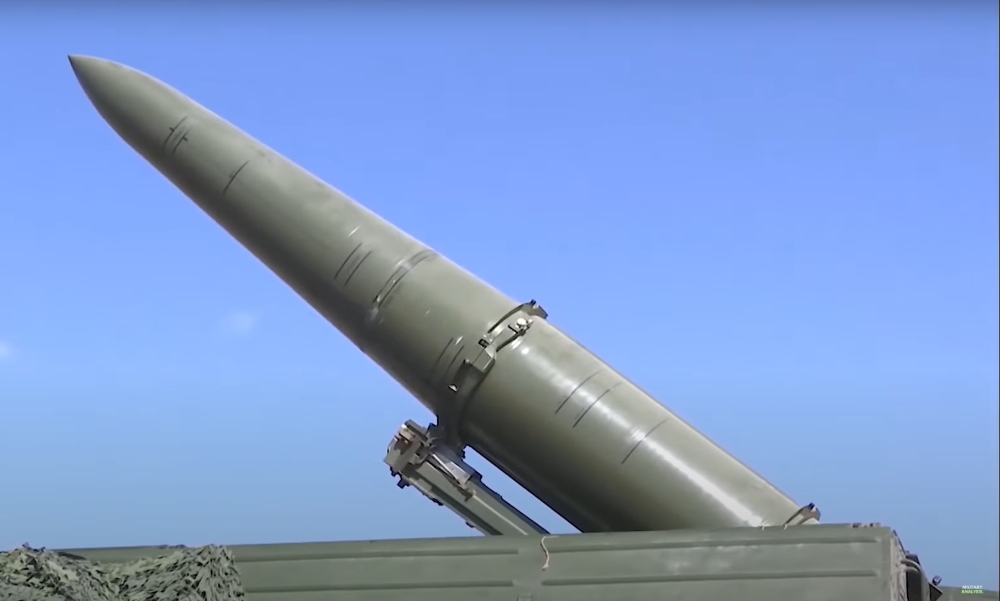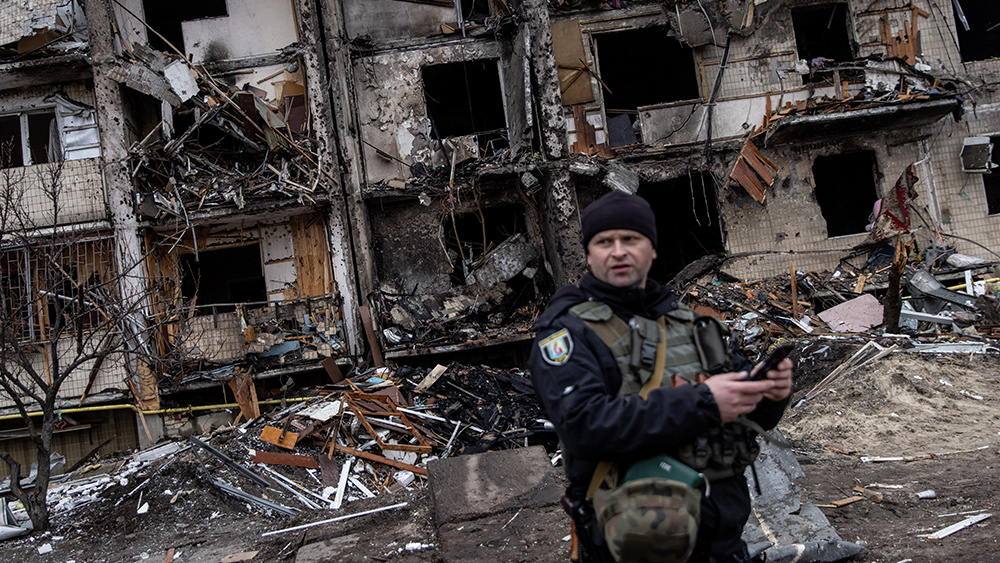
The Russian military has fired never-before-seen missiles into Ukraine that have unique capabilities as Western intelligence agencies say that Moscow's forces have been ground to a halt by stiff resistance and are no longer making progress.
U.S. intelligence officials who detected and analyzed a barrage of missiles fired into Ukraine from Russia contain decoys that fool air-defense radars as well as heat-seeking missiles fired to bring them down, The New York Times reported this week as the war enters its fourth week.
The paper said that each device is roughly 1 foot long and shaped like a dart. They are white with orange tails, a U.S. intelligence official said. The devices are released by the Iskander-M short-range ballistic missiles that the Russian military has been firing from mobile launchers from inside their own country, according to the official, after the missile senses that it is being targeted by ground air defense systems.
"Each is packed with electronics and produces radio signals to jam or spoof enemy radars attempting to locate the Iskander-M, and contains a heat source to attract incoming missiles," the paper noted. "The official, who was not authorized to speak publicly about intelligence matters, described the devices on the condition of anonymity."
The Times adds:
The use of the decoys may help explain why Ukrainian air-defense weapons have had difficulty intercepting Russia’s Iskander missiles.
Powered by a solid-fuel rocket motor, the Iskander can reach targets more than 200 miles away, according to U.S. government documents. Each mobile launcher can fire two Iskanders before it must be reloaded.
Photos of the dart-shaped decoys first made the rounds on social media about two weeks ago, stumping experts as well as open-source intelligence analysts, many of whom mistakenly took the devices for bomblets dispensed by cluster bomb weapons just because of their shape and size.
Richard Stevens, a 22-year British Army veteran who worked as an explosive ordinance disposal specialist before entering a career as a civilian bomb tech for 10 years in Iraq, Africa and other parts of the world, told the Times that he'd been around "plenty of Chinese and Russian munitions, but I had never seen this."
He posted pictures of the munitions to a website for military and civilian bomb disposal professionals that he launched in 2011 to get some insight into what the devices might be, but he said no one else knew what they were, either.
“That Russia is using that size of weapon — the Iskander-M — and quite a few of them I believe, that’s why we’re seeing this now,” Stevens said. “It’s just that, post-conflict in the past 10 to 15 years, no one has had the opportunity to see this.”
According to the U.S. intelligence official, the devices are similar to decoys deployed by missiles during the Cold War called "penetration aids," which have accompanied nuclear warheads since the 1970s and are designed to evade missile defense systems. Incorporating them into conventional warhead missiles like the Iskander-M has not been seen before in military arsenals.
“The minute people came up with missiles, people started trying to shoot them down, and the minute people started trying to shoot them down, people started thinking about penetration aids,” noted Jeffrey Lewis, a professor of nonproliferation at the Middlebury Institute of International Studies in Monterey, Calif. “But we never see them because they’re highly secret — if you know how they work, you can counteract them.”
Meanwhile, U.S. and Western intelligence officials say that Russian forces are continuing to pound Ukrainian cities, but overall, the military advance has stalled, though civilians are continuing to die.
"British military intelligence said in an update on Thursday that the invasion had 'largely stalled on all fronts,' and Russian forces were suffering heavy losses from a staunch and well-coordinated Ukrainian resistance," Reuters reported Thursday.
Even if Russian forces 'capture' Ukraine, resistance fighters will continue to bleed them for as long as they stay on Ukrainian soil, so Putin, in the end, will 'win' nothing.
Sources include:
Please contact us for more information.















